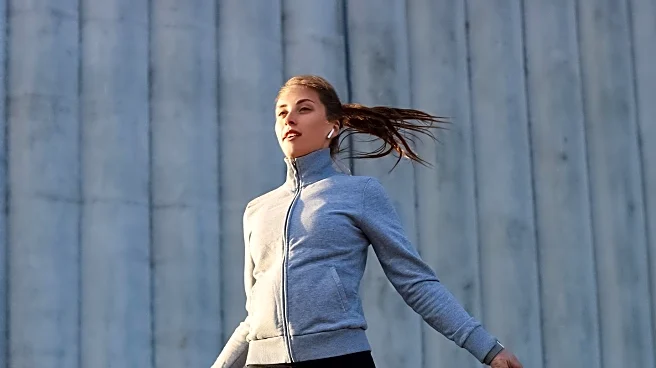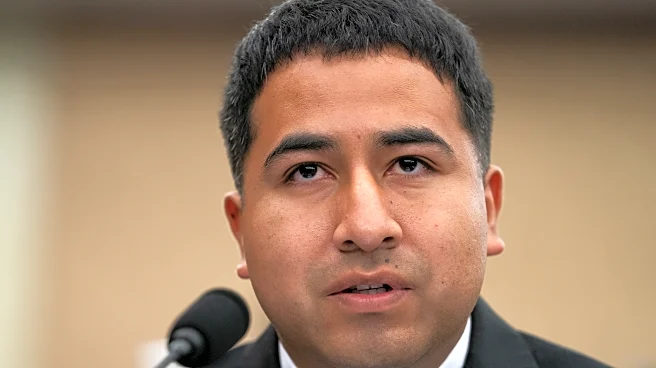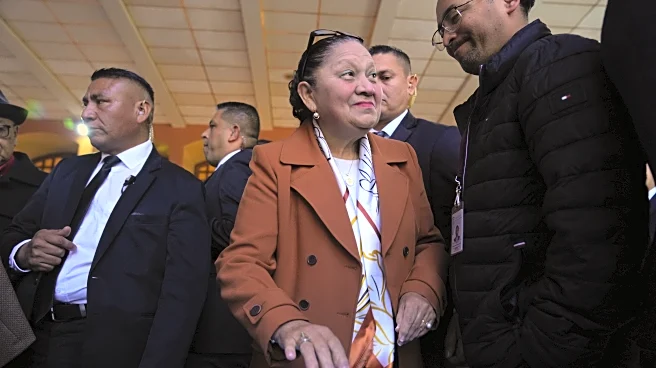What's Happening?
A new health trend on TikTok involves waking up and jumping 50 times to boost energy and focus. This practice, popularized by trainer Kathryn Smith, is said to enhance blood flow and oxygen to the brain, potentially improving mood and reducing fatigue.
The trend has gained traction with users sharing their positive experiences, claiming benefits such as reduced bloat and improved mental clarity. Experts like Eric Ascher, DO, and Steven K. Malin, PhD, acknowledge that while the specific routine of 50 jumps hasn't been scientifically validated, the act of jumping can indeed stimulate endorphin release, improve blood circulation, and aid in lymphatic drainage. This simple exercise is likened to jump roping, which is known for its cardiovascular benefits.
Why It's Important?
The trend highlights a growing interest in simple, accessible fitness routines that can be easily integrated into daily life. By promoting physical activity first thing in the morning, this practice could encourage more people to adopt healthier lifestyles. The potential benefits of increased energy and improved mood can have significant implications for mental health, particularly in reducing stress and anxiety. As more individuals seek ways to enhance their well-being without complex or time-consuming workouts, such trends could influence public health positively by making exercise more approachable.
What's Next?
As the trend continues to spread, it may inspire further research into the specific benefits of short, high-intensity exercises like jumping. Fitness professionals and health experts might explore similar routines that can be easily adopted by the general public. Additionally, the popularity of such trends on social media platforms like TikTok could lead to increased awareness and participation in physical activities, potentially impacting public health initiatives aimed at reducing sedentary lifestyles.
Beyond the Headlines
This trend also underscores the role of social media in shaping health behaviors and the potential for platforms like TikTok to influence public perceptions of fitness. The viral nature of such trends can lead to widespread adoption, but it also raises questions about the accuracy of health information shared online. As users continue to seek quick and effective health solutions, the importance of consulting with healthcare professionals and relying on evidence-based practices remains crucial.













![Cortisol vs. Melatonin: The Biological War Happening Inside Every Night-Shift Worker]](https://glance-mob.glance-cdn.com/public/cardpress/binge-magazine-card-generation/spaces/US/en/discover-daily/images/ppid_7byehtbd-image-177082393426031154.webp)



